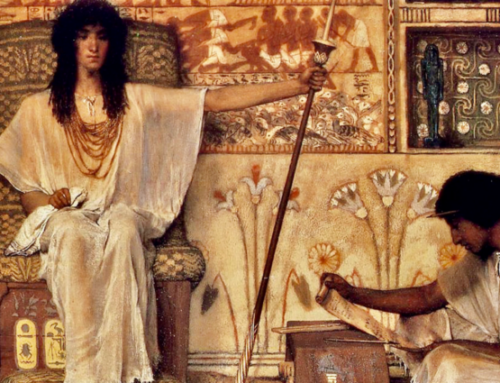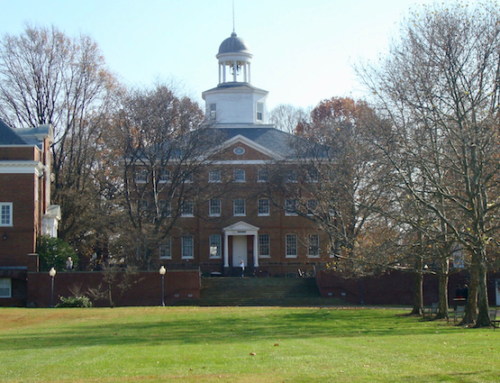As Cicero watched his own republic descend into chaos and madness, he recorded as quickly as he could the most important aspects of the Roman Republic, preserved if not in temporal reality, than in poetry, history, and memory.
Famously, he wrote (quoted by our patron Winston Elliott often):
Ancestral morality provided outstanding men, and great men preserved the morality of old and the institutions of our ancestors. But our own time, having inherited the commonwealth like a wonderful picture that had faded over time, not only has failed to renew its original colors but has not even taken the trouble to preserve at least its shape and outlines. What remains of the morals of antiquity, upon which Ennius said that the Roman state stood? We see that they are so outworn in oblivion that they are not only not cherished but are now unknown. What am I sot say about the men? The morals themselves have passed away through a shortage of men; and we must not only render an account of such an evil, but in a sense we must defend ourselves like people being tried for a capital crime. It is because of our vices, not because of some bad luck, that we preserve the commonwealth in name alone but have long ago lost its substance. [Cicero, On the Commonwealth, Book 5; Cambridge Texts]
If this republic of the moment had faded from our grasp, had become a shade at best, a specter at worst, perhaps another, more real one existed elsewhere. Perhaps one could find it beyond the bounds of the world and even beyond the confines of time.
A human being, [sic] was endowed by the supreme god with a grand status at the time of its creation. It alone of all types and varieties of animate creatures has a share in reason and thought, which all the others lack. What is there, not just in humans, but in all heaven and earth, more divine that reason? When it has matured and come to perfection, it is properly named wisdom. . . reason forms the first bond between human and god. [Cicero, On the Laws, Book 1; Cambridge texts]
Once recognized, a man finds himself “not bound by human walls as the citizen of one particular spot but a citizen of the whole world as if it were a single city,” the stoic cosmopolis [Cicero, On the Laws, Book 1; Cambridge texts]
When St. Augustine witnessed his world crumble around him, the ephemeral Christian empire of Rome attacked from without and from within, he, like his exemplar Cicero, recorded the best of what had come before him.
“To the materialist, nothing could be more futile than the spectacle of Augustine busying himself with the reunion of the African Church and the refutation of the Pelagians, while civilisation was falling to pieces about his ears,” historian Christopher Dawson argued. To Augustine, the destruction of political institutions meant very little in the long run. The venerable scholar and saint “looked beyond the aimless and bloody chaos of the world to the world of eternal realities from which the world of sense derives all the significance it possesses.”
For Augustine, the best of the past would be preserved if not in temporal reality, than in poetry, history, and memory. Though outstanding, neither Cicero nor Augustine was unique in their efforts. Socrates, Plato, Livy, Virgil, and others imagined an idealized past, a decayed present, and a realm beyond, untouched by neither Mars nor Kronos. None of these men, it should be stated (though the statement is obvious), shirked their duties as human persons of good will, reason, and imagination. Indeed, the greater the decay around them, the greater the duty to repair, to heal, and to order properly, if not for their immediate generation, than for the sake of their ancestors and their posterity.
In the middle of the men mentioned above stood our beloved St. Paul, Christian Apostle to the Gentiles. “The Apostle” as St. Thomas called him.![]()
Teaching at a Protestantly-tinged college, I often encounter students who fear any revolution, rebellion, or resistance as a denial of St. Paul’s teachings in his thirteenth chapter of his letter to the Christian peoples of Rome. “Let every person be subject to the governing authorities. For there is no authority except from God, and those what exist have een instituted by God. Therefore he who resists the authorities resists what God has appointed, and those who resist will incur judgment.” [all scripture quotes from the Navarre Bible, The Letters of Saint Paul]
(We’ll leave aside the obvious contradiction of a Protestant fearing resistance to authorities.)
The problem with a literal interpretation of these few lines is that it 1) ignores the remainder of the passage, and 2) it ignores the context of Paul’s entire letter to a classical people.
First, the rest of the passage indicates rather strongly that for the rulers to be legitimate, a certain virtue must reside in them.
For the same reason you also pay taxes, for the authorities are ministers of God, attending to this very thing. Pay all of them their dues, taxes to whom taxes are due, revenue to whom revenue is due, respect to whom respect is due, honour to whom honour is due.
If ones takes these passages and compares them to the passages in which Jesus calls for one to render what is Caesar’s to Caesar and to God what is God’s and to the relationship of marriage and the church in Ephesians, reciprocity becomes clear. No Christian has the duty to obey an unjust or immoral ruler or government unceasingly and without reproach. The ruler must behave as a ruler for a legitimate relationship. That is, he must work for the common good and for justice. (I will deal with Augustine’s and Aquinas’s arguments on justice and law in a future essay.)
Second, one should look at St. Paul’s letter to the Romans as a whole and not deconstruct it into the equivalent of Fortune Cookie statements. The entirety of St. Paul’s letter to the Christian peoples of Rome deals with the nature of law and of citizenship. It is, penultimately, a very Ciceronian examination (ultimately, of course, it’s Christian). In order, it examines natural law, Judaic law, gentile law, much more Judaic law, Christian law and citizenship, the relationship of Jews and Gentiles (from the one root (chapter 11)), citizenship in the church (chapter 12), citizenship in the secular world (chapter 13), and finally an exhortation to obey the highest law of all, the law of love. Though true Love (Incarnated Love at that) had touched the earth for thirty-three years, its true home, the New Jerusalem, sat well beyond the bounds of time and space.
Indeed, True Love can be known, but only through poetry, history, and memory.
Continued from Part I: To be continued: St. Augustine and his Fellows, St. Thomas Aquinas and his Genius, Non-St. Eric Voegelin and his Decayed Symbols.
Books on the topic of this essay may be found in The Imaginative Conservative Bookstore. The Imaginative Conservative applies the principle of appreciation to the discussion of culture and politics—we approach dialogue with magnanimity rather than with mere civility. Will you help us remain a refreshing oasis in the increasingly contentious arena of modern discourse? Please consider donating now.







Leave A Comment